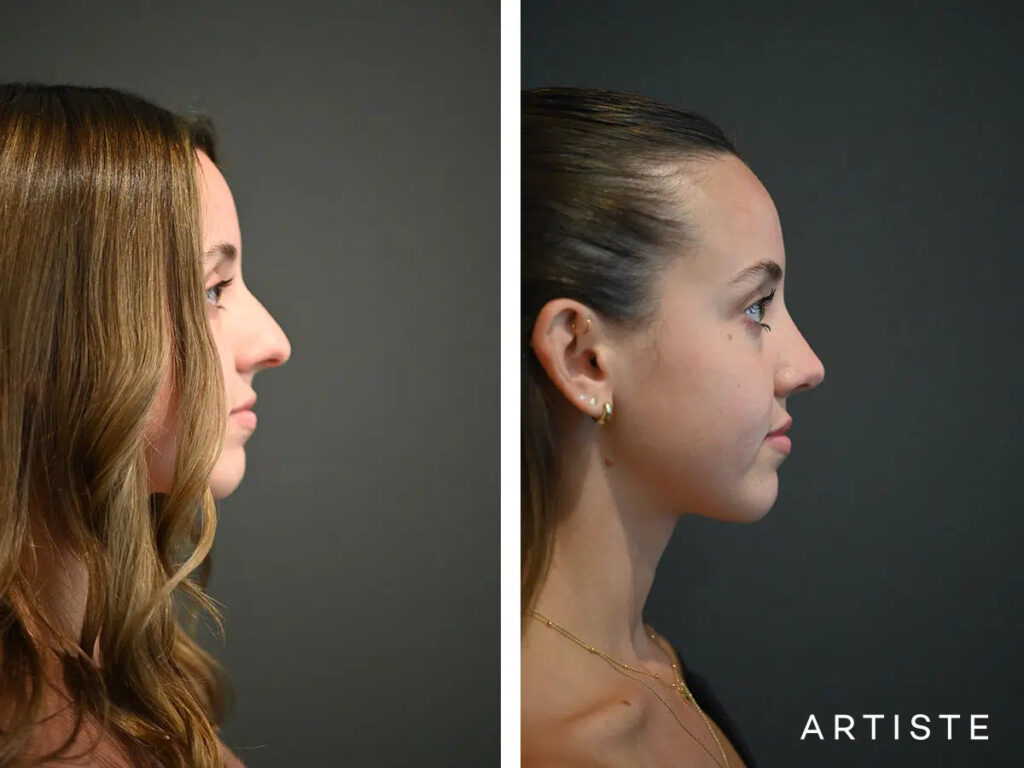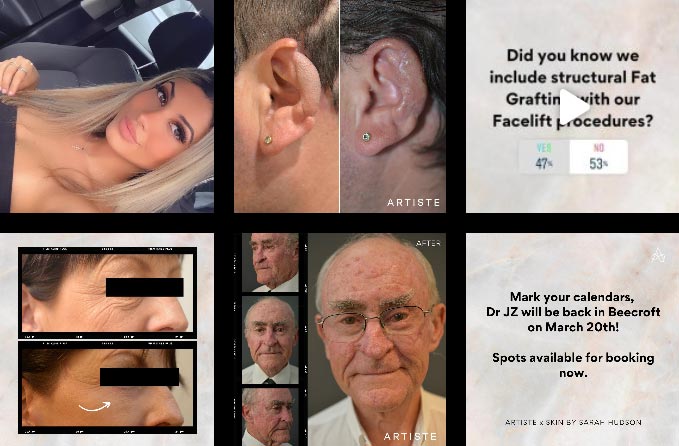Does a Rhinoplasty Change Your Voice?
Model featured in photography

Rhinoplasty, colloquially known as a Rhinoplasty, is a surgical procedure which changes the nose’s shape and structure. Some people seek it for various reasons, be it personal preferences or functional improvements (e.g. to improve breathing).
Some may also be curious about whether changing the nasal structure could affect someone’s voice, as this is an area where nasal anatomy plays an important role. This blog examines this topic, offering general insights of how a rhinoplasty might affect voice characteristics based on individual factors and the actual procedure itself.
How Does a Rhinoplasty Work?
A Rhinoplasty can be performed for both cosmetic and functional reasons. The procedure typically involves making incisions, reshaping the bone and cartilage, and then closing the incisions. Cosmetic surgeons may use various techniques depending on the desired outcome, such as reducing the size of the nose, correcting a deviated septum, or addressing breathing difficulties.
Changes After a Rhinoplasty
- Aesthetic Changes: One of the primary goals of rhinoplasty is to alter the appearance of the nose. This may involve reducing a prominent hump, refining the tip, or narrowing the nostrils. These changes are focused on the external appearance of the nose.
- Functional Improvements: In cases where rhinoplasty is performed for functional reasons, such as correcting a deviated septum, it can improve breathing. Patients who have had trouble breathing due to nasal blockages may find relief after the procedure.
Does a Rhinoplasty Change Your Voice?
Previously, there was no substantiated evidence that suggests a Rhinoplasty will affect the voice. This is due to the voice being primarily produced by the vocal cords located in the larynx, (voice box), however, the nasal cavity does play a key role in shaping the quality of sound.
Research by Guarro, Brunelli, Rasile, and Alfano in Effects and Changes on Voice After Rhinoplasty: A Long-Term Report featured in the National Library of Medicine indicates that modifications to the nasal structure, particularly reduction rhinoplasty, may result in subtle changes to vocal resonance, pitch, or tone. The study found these changes are minimal and may be unnoticed by most people.
However, in those patients who use their voice in professional settings, like singers or teachers, the changes are more perceptible.
One should note that any voice changes may be associated to modifications in airflow and resonance, not necessarily changes to the voice. Patients considering rhinoplasty, especially those whose careers depend on their use of voice should note these possible outcomes with their surgeon during consultation.
Rhinoplasty in Sydney
If you’re considering rhinoplasty and are concerned about its potential effects on your voice, its potential risks and complications, you should discuss your concerns with a qualified plastic surgeon. At Artiste Plastic Surgery, our Specialist Plastic Surgeon, Dr Jack Zoumaras, will discuss how the procedure works and address your concerns about the procedure, helping you make an informed decision. You may wish to book a consultation today.
Disclaimer: At Artiste Plastic Surgery, our Plastic Surgeons led by Dr Jack Zoumaras have been trained to the highest possible degree. All surgery has risks and it is always advised to get a second opinion. Risks are very real and we cannot guarantee any result. Results are illustrated as a guide only. All risks are managed and any need for revision surgery or complications (1-5%) can be managed by our specialist plastic surgeons.
Any statements on how you will feel is based on Level V Evidence:
Level V: How you will feel after plastic surgery varies between individuals, depending on psychological and physical factors. Our internal research is based on how patients in our practice feel after surgery.
The blogs are not a substitute for a medical consultation and do not form as part of the doctor to patient relationship.
SHARE THIS ARTICLE
Sep25
Rhinoplasty Recovery Timeline: What to Expect Week by Week
Disclaimer: At Artiste Plastic Surgery, our Plastic Surgeons led by Dr Jack Zoumaras have been trained to the highest possible degree. All surgery has risks and it is always advised ...
Sep25
Are Non-Surgical Nose Jobs Worth It?
Are Non-Surgical Nose Jobs Worth it? Pros, Cons & Alternatives Are Non-Surgical Nose Jobs Worth it? Pros, Cons & Alternatives Are Non-Surgical Nose Jobs Worth it? Pros, Cons & Alternatives ...
ABOUT ARTISTE
Artiste Plastic Surgery is an Award Winning Specialist Plastic Surgery practice led by internationally trained Dr. Jack Zoumaras, Plastic Surgeon and Peer Reviewed Face Surgeon
Artiste offers the latest Cosmetic Surgical Procedures of the Face, Breast and Body, inspired from leading centres around the world.
STAY IN THE LOOP
Enter your email address below to receive updates on new articles and VIP access to promotions and special offers.
FOLLOW US ON INSTAGRAM
